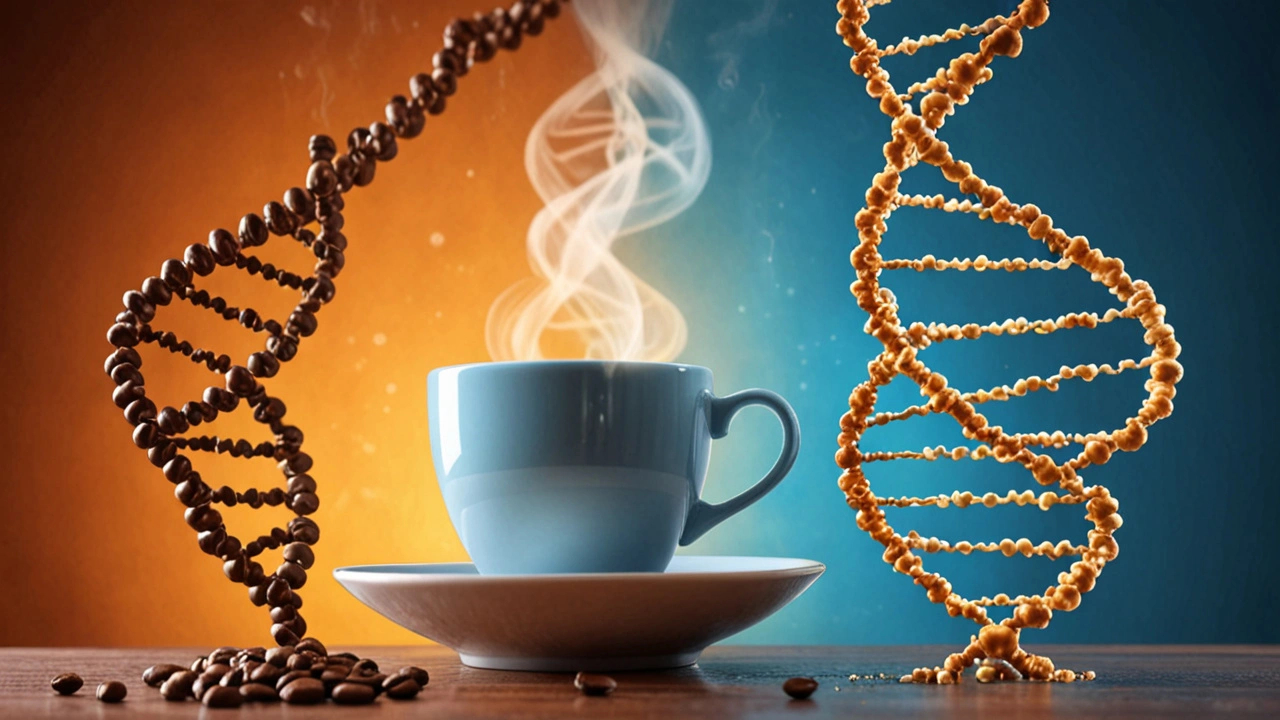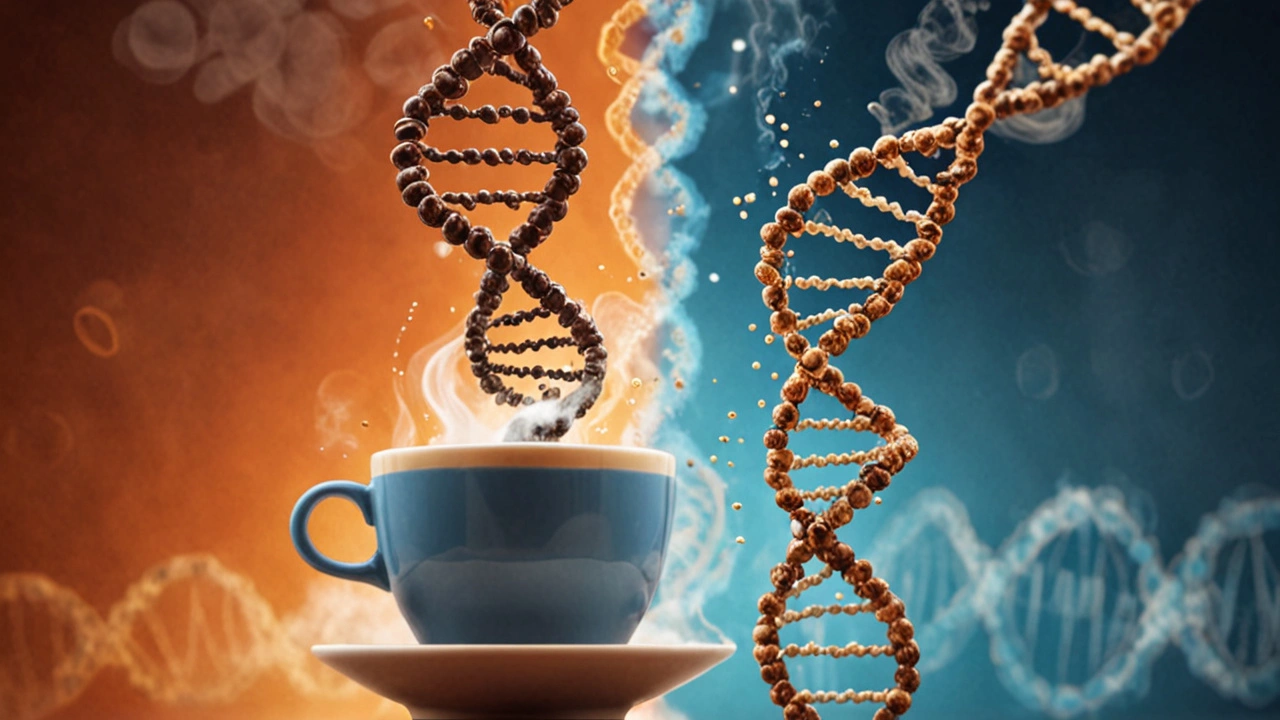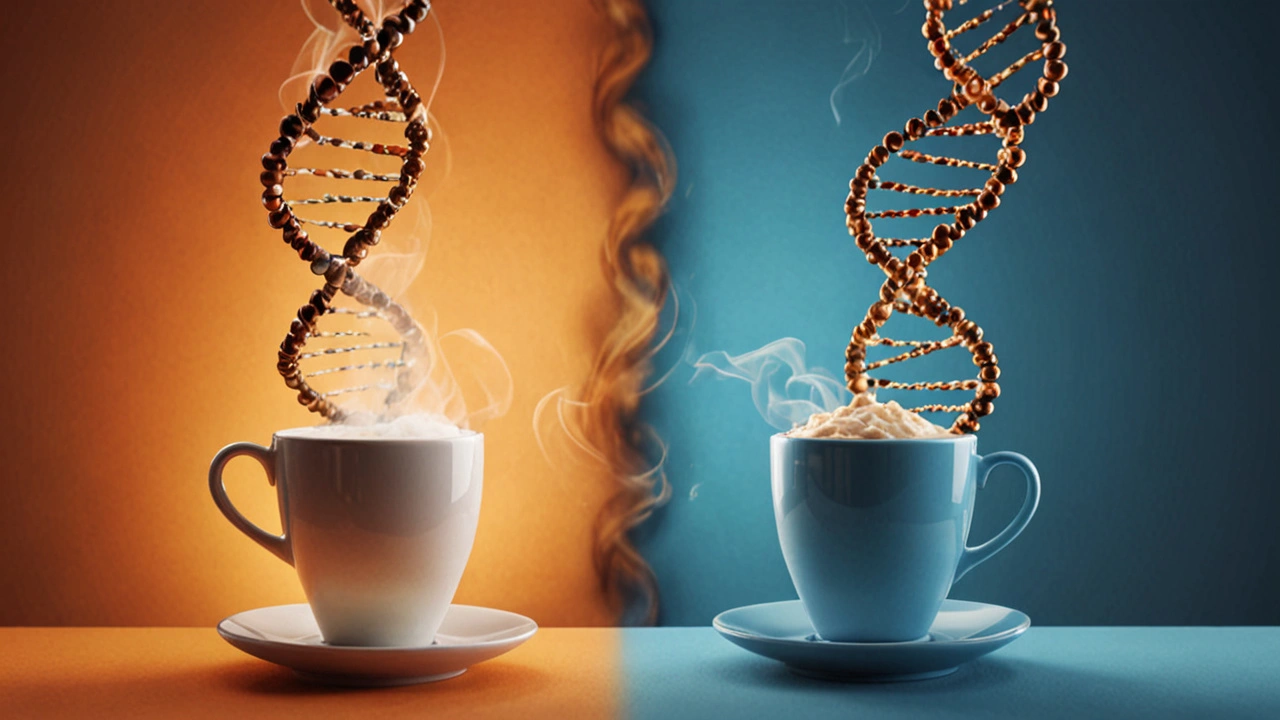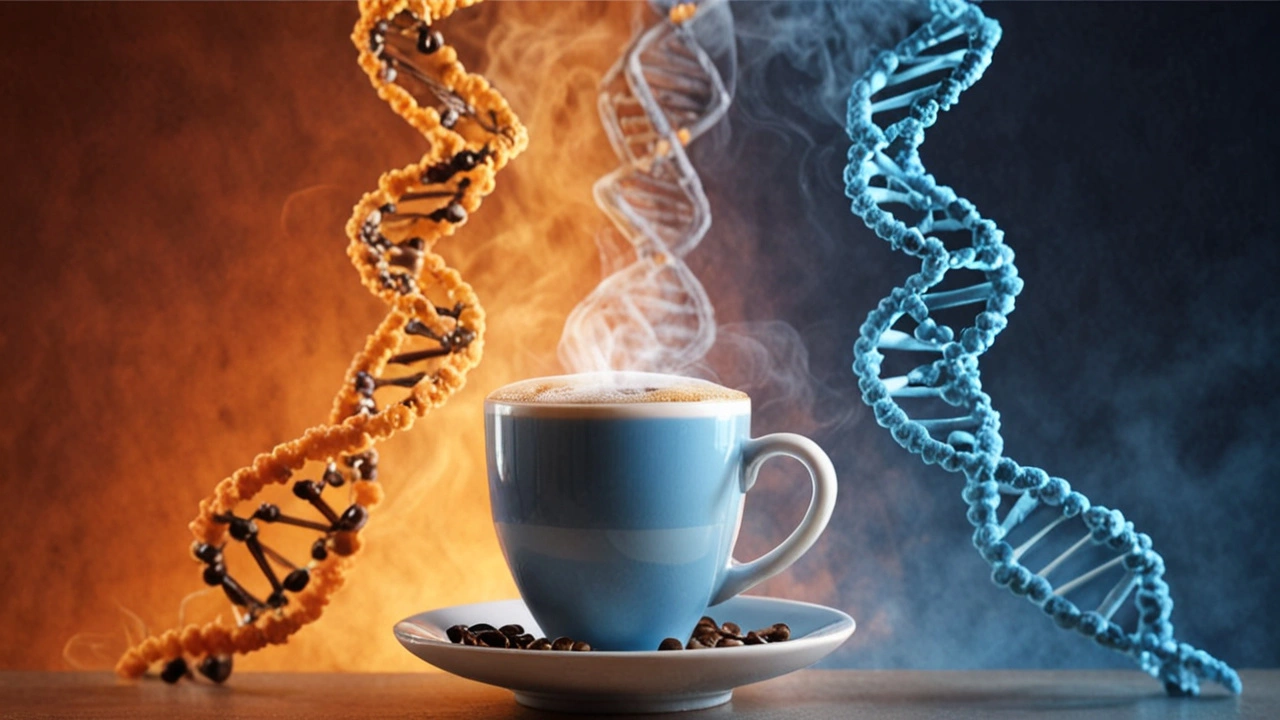
Genetic Variations and Coffee Consumption
For many of us, coffee is more than just a beverage - it's a daily ritual, a pick-me-up, and even an essential part of our identity. But what if the reason we reach for that second (or third) cup isn't just about taste or habit? A recent study published in the journal Neuropsychopharmacology delves into an intriguing aspect of our coffee habits: the role of genetics. This research suggests that our genes might play a significant role in influencing how much coffee we drink, showing that coffee consumption is indeed a heritable trait.
In this comprehensive study, scientists explored genetic variations and their association with coffee consumption behaviors. By analyzing the data of numerous participants, researchers were able to identify specific genes that seemed to affect coffee drinking patterns. It wasn’t just an abstract connection; the findings showed tangible differences in coffee consumption directly tied to genetic markers. The implications of these discoveries are quite profound, as they open up a new perspective on why people consume coffee in widely differing amounts.

The Study in Detail
The study, which involved a diverse group of participants, utilized advanced genetic analysis techniques to discern how individual genetic differences influence coffee consumption. It was revealed that certain genetic markers are more prevalent in individuals who consume high amounts of coffee. Conversely, variations in these genes were less common among those who drink little to no coffee. These results point to a clear genetic component influencing coffee intake, suggesting that our morning coffee habits might be written into our DNA.
Moreover, the researchers examined how these genetic variations correlate with other behaviors and traits. For instance, they sought to understand whether people with specific genetic markers also exhibited particular lifestyle habits or health outcomes. Interestingly, the study uncovered that those with a genetic disposition for higher coffee consumption often had different patterns of behavior compared to those who consumed less coffee. These patterns did not just relate to coffee but also extended to other dietary habits and even psychological traits.

Why Genes Matter in Coffee Consumption
But why do these genetic differences matter? On a surface level, understanding why some of us crave more coffee while others are content with less is fascinating. However, the implications go deeper. With these findings, we can start to appreciate how genetics shape not just our preferences but also our interactions with everyday substances like caffeine. For instance, individuals with genetic predispositions to high coffee consumption might metabolize caffeine differently or have varying sensitivities to its effects.
This genetic insight can also have broader health implications. Knowing which genes influence coffee consumption can help in understanding how caffeine impacts the body and mind. For example, people with certain genetic profiles might be at higher risk for caffeine-related health issues, such as anxiety or insomnia. Alternatively, they might also experience the beneficial effects of caffeine, such as enhanced cognitive function, more acutely. Thus, genetic research can pave the way for personalized dietary recommendations and interventions.

Future Directions and Broader Impacts
Looking ahead, the study opens up several avenues for further research. Scientists could explore how these genetic markers interact with other dietary habits or how they might influence long-term health outcomes. Additionally, understanding the genetic basis of coffee consumption might illuminate similar patterns for other commonly consumed substances, such as sugar or alcohol. This could lead to broader insights into eating and drinking behaviors as a whole.
There is also the potential for practical applications. For instance, if genetic testing becomes more accessible, individuals might one day be able to receive tailored advice on their coffee consumption based on their genetic makeup. This could help optimize both the enjoyment and the health benefits of coffee while minimizing any adverse effects. Such personalized nutrition plans could revolutionize how we approach diet and lifestyle choices.
Conclusion
The discovery that genetic differences influence coffee consumption habits is a significant step in understanding the complex factors that shape our behaviors. It highlights the intricate interplay between our genetics and daily choices, providing a fascinating glimpse into why we do what we do. As research in this field continues to evolve, we can expect even more detailed insights into how our genes influence various aspects of our lives. For now, we can sip our coffee with a newfound appreciation of the profound, and sometimes hidden, forces at play.